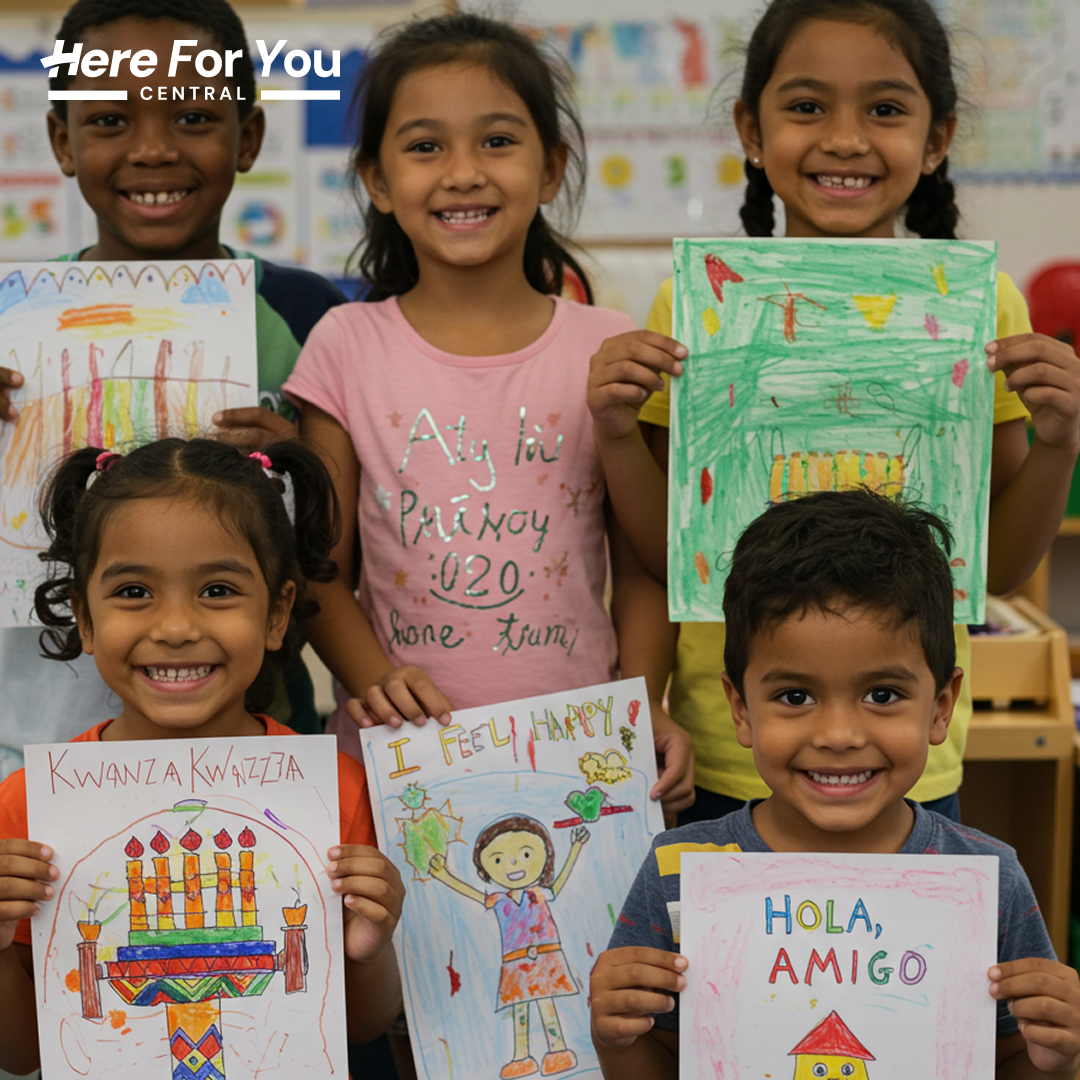Drop into a typical Newark morning: parents juggling work schedules, school runs, and Noah’s needs. Amidst this, one question remains constant: can my child be cared for in a space that reflects our culture, speaks our language, and prepares them to thrive? Across the city, Black entrepreneurs, educators, and parents are answering with excellence—founding daycare centers rooted in trust, community, and cultural pride. From preparing toddlers for kindergarten to uplifting entire neighborhoods, these childcare providers are transforming Newark, one nap time at a time.
Despite New Jersey’s robust daycare licensing (over 1,200 centers statewide) , culturally specific care remains rare. According to Newark Kids Count, nearly 48% of children here are Black, with 53% living in single-parent homes . Childcare that speaks to their identity isn’t just nice—it’s essential.
In this long-form feature, HfYC highlights four standout centers: New Life Child Care Learning, Blax Child Care, Tiny Love Daycare, and All God’s Children Early Learning Center (AGC)—each offering culturally grounded care, wraparound services, and stability. We speak with founders, parents, and educators to show why these centers represent more than babysitting—they’re catalysts for community change.
Section 1: State of Childcare in Newark
Newark and Essex County fall under NJDCF licensing. Yet the licensed providers list highlights how Black-owned centers often go under the radar . The Urban League of Essex County (ULEC) reports that local families need smaller, culturally attuned learning spaces more than large generic franchises .
Newark Kids Count 2024 shows:
- ~74,000 children under age 18; ~48% Black
- Median family income: $45,803 vs. NJ’s ~$120,874
- Over 53% of households with children are headed by single parents
These stats underscore the need for accessible, affordable, culturally sensitive childcare. Licensed providers must meet rigorous standards, but many are disconnected from the community they serve.
Four Black‑Owned Centers
2.1
New Life Child Care Learning
A Christian-based center in North Newark, run by Leila Green, serves infants through preschool. NAEYC-accredited, it emphasizes African American literature, music, and language. Leila recounts how children learn about holiday traditions, from Juneteenth to Kwanzaa, through art and storytime.
“We want them to see themselves in the books we read,” says Green.
Parents praise the emotional support: “They taught my son how to identify feelings before he started K–2,” a mother shared.
2.2
All God’s Children Early Learning Center (AGC)
Operating since 1997, AGC serves children aged 6 weeks to 11 years . The center offers Pre-K, before & after school care, summer programs, and follows a faith-informed curriculum focusing on the “whole child”—socially, emotionally, and academically .
AGC’s staff speak to a well-rounded model where prayer, nutritious snacks, and character-building coexist. A parent shared:
“They teach my daughter to walk in God’s light and count to 100 before kindergarten.”
2.3
Tiny Love Daycare Center
Founded by Vanessa DuBose, Tiny Love caters to toddlers with a developmentally appropriate curriculum. DuBose emphasizes bilingual support, teaching age-appropriate Spanish phrases to reflect Newark’s diversity.
She notes a significant difference: culturally relevant play “keeps kids engaged, curious, and confident.”
2.4
Blax Child Care
Located near Central Ward, Blax is led by childhood educator Jasmine Black. Though small, the center offers high staff-to-child ratios, emphasizing social-emotional learning through circle time, Black history projects, and daily affirmations.
Black describes their philosophy:
“We’re not just caregivers; we’re culture carriers.”
Students often continue together through grades, forging lifelong bonds.
Roots & Community Impact (~500 words)
Black-owned daycare centers form the backbone of community support. The North Ward Center, operating since the 1970s, shows how diasporic-rooted early childhood education can scale, serving over 600 preschoolers yearly .
Black providers in Newark often collaborate with local nonprofits, libraries, and grassroots groups to host parent workshops, health screenings, and job-readiness events.
Parents and staff shared stories of kids writing thank-you letters to firefighters, building community garden plots, and celebrating Black authors, all by age four. One teacher recalled a student who took their first-ever library book because it featured people who looked like them.
These centers are also economic drivers. Each one employs local staff, educators, cooks, drivers, kept in place because of the trust such providers build.
Challenges & Solutions
Despite their impact, Black-owned centers face hurdles:
- Funding & Licensing: NJDCF standards cover staff qualifications, safety, and curriculum. Accreditation (e.g., NAEYC) is costly in time and money. Urban League and ULOHC assist with grants and training .
- Urban Competition: Chains and municipal partnerships offer subsidies, overshadowing small operators.
- Capacity & Infrastructure: Many run in retrofitted church basements or small storefronts.
AGC’s Executive Director notes:
“We make miracles happen with 25 kids in a 10×10 room—but what if we had a Columbia Ave campus?”
Solutions emerging:
- Collective purchasing and group accreditation via Urban League services.
- Shared-service alliances offering HR, food programs, and continuing education .
- Municipal recognition: Newark now promotes culturally specific centers through early childhood coalitions.
Why It Matters
These centers represent more than childcare, they’re cultural institutions preserving identity and pride.
When Black children see themselves in curricula, teachers, and peers, they enter school with confidence, increasing literacy and reducing disciplinary issues.
When local Black women own childcare businesses, wealth stays within the community, strengthening generational involvement.
At HfYC, we’re not just reporting. We’re spotlighting spaces where culture, economy, and education intersect—and rewriting the narrative around Black family support in Newark.
If you know a Black-led Newark daycare that’s changing lives, linominate them by emailing: ch@hereforyoucentral.com or tag us @hereforyoucentral.
Glossary
- NAEYC – National Association for the Education of Young Children
- NJDCF – New Jersey Department of Children & Families
- Accreditation – Official recognition of high early education quality
- Wraparound services – Additional support like meals, counseling, enrichment
- Culturally Responsive Curriculum – Teaching that reflects students’ cultural experiences
References
- https://acnj.org/newark-kids-count-data-report-2024-media-release/
- https://en.m.wikipedia.org/wiki/New_Community_Corporation?
- Newark Kids Count data
- Urban League/Hudson support programs
- North Ward Center childcare stats
